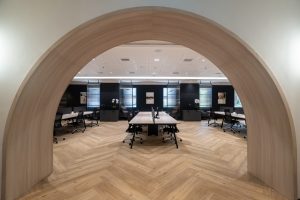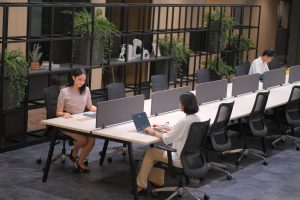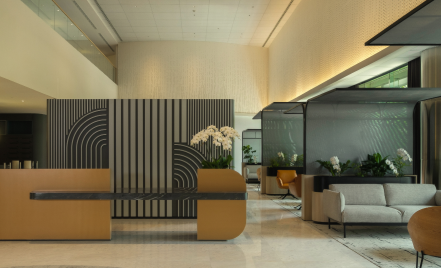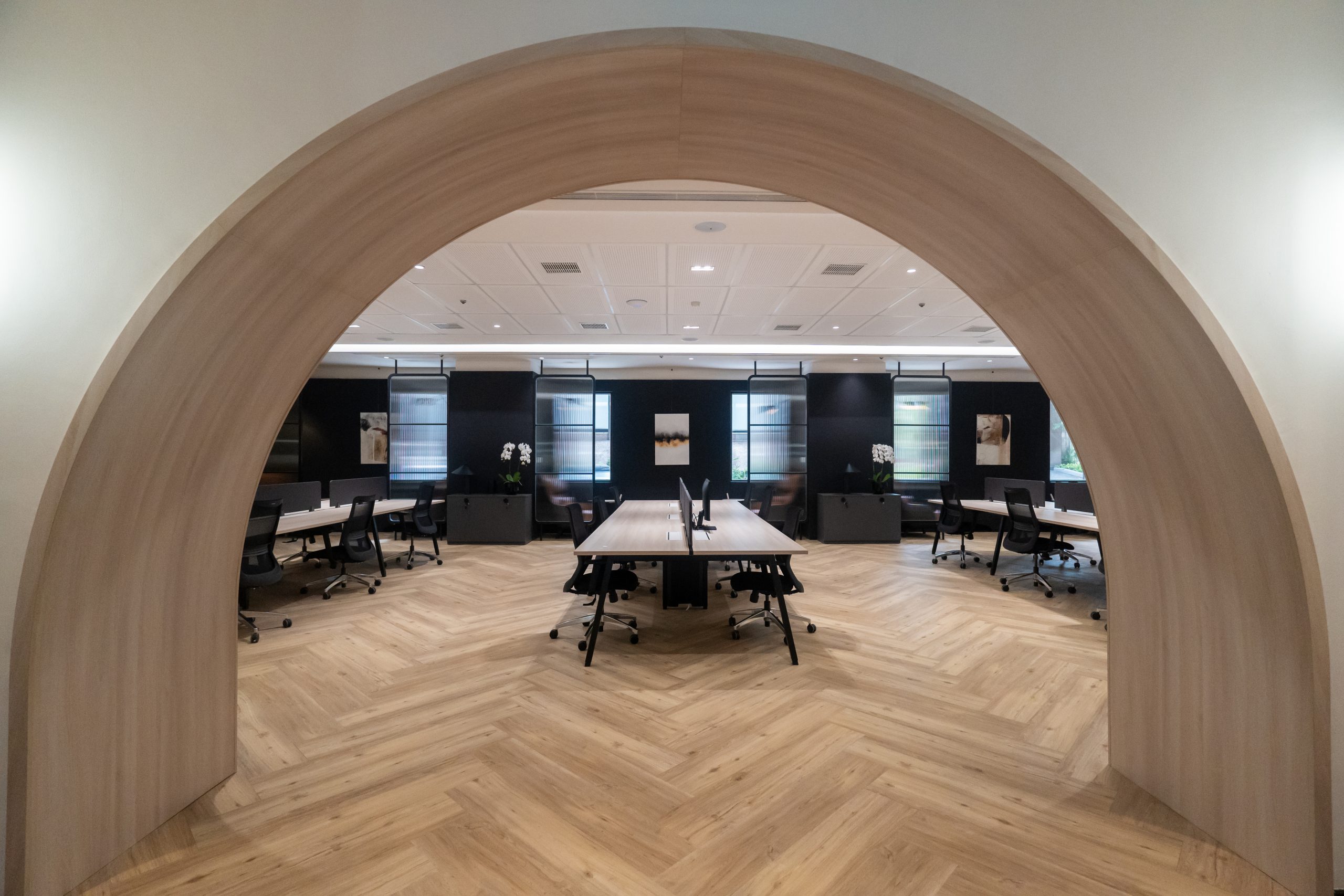The coworking industry has evolved significantly, offering professionals and businesses dynamic workspaces that go beyond traditional offices. With an increasing demand for flexible work environments, the focus has shifted towards creating spaces that foster productivity, collaboration, and comfort. What makes a good coworking space?
The answer lies in a balance of well-designed physical environments, cutting-edge technology, and a strong community culture. In this article, we explore the essential elements that define a high-quality coworking space and why choosing the right one can make all the difference.
Physical Environment and Design Elements

A well-designed coworking space creates an atmosphere conducive to focus and collaboration. The following key elements contribute to an optimal workspace environment:
Thoughtful Layout and Space Planning
An effective coworking space balances open collaborative areas with quiet zones for deep work. A good layout ensures accessibility, efficient use of space, and designated areas for different work styles. This includes having dedicated areas for meetings, brainstorming, and solo work, ensuring every professional finds the right environment for their needs. Well-planned coworking spaces also consider movement flow, preventing overcrowding and congestion.
Natural Light and Air Quality
Proper ventilation, natural lighting, and air quality have a direct impact on productivity and well-being. A well-lit space with greenery and fresh airflow enhances concentration and reduces stress. Studies show that exposure to natural light improves mood and energy levels, contributing to better work performance. High-quality air filtration systems and biophilic designs incorporating plants help maintain a refreshing, health-conscious environment.
Acoustic Management
Controlling noise levels is crucial in coworking spaces. Incorporating soundproofed meeting rooms, acoustic panels, and quiet areas ensures a comfortable and distraction-free work environment. A well-designed coworking space strategically places workstations away from communal areas and utilizes noise-dampening materials to maintain an optimal balance between collaboration and concentration. Some spaces also implement white noise systems to mask background disturbances.
Ergonomics and Comfort
Comfortable and ergonomic furniture, including adjustable chairs, standing desks, and well-designed lounge areas, supports long working hours and promotes a healthier workspace. Coworking spaces that prioritize ergonomic solutions reduce strain on workers, helping prevent common workplace injuries such as back pain and repetitive strain disorders. Flexible seating arrangements, relaxation zones, and wellness features such as meditation rooms or fitness areas further contribute to a holistic work experience.
Technology and Infrastructure

A great coworking space provides reliable technological infrastructure to meet the needs of modern professionals. The following aspects are critical:
High-Speed, Reliable Internet
Fast and stable internet connectivity is a fundamental requirement. A good coworking space offers high-speed broadband and backup networks to ensure uninterrupted workflow. Dedicated bandwidth for video conferencing, cloud storage, and seamless connectivity across all areas of the workspace is essential for businesses that rely on digital tools and remote communication.
Meeting Room Technology
State-of-the-art audiovisual (AV) equipment, video conferencing capabilities, and seamless booking systems are essential for professional meetings and presentations. High-quality microphones, soundproof meeting spaces, and integrated smart boards allow for interactive sessions, ensuring productivity in both virtual and in-person collaborations. A good coworking space also offers easy online scheduling tools for hassle-free room reservations.
Security and Access
A secure coworking space provides controlled access through keycards, biometric systems, and 24/7 surveillance, ensuring the safety of members and their data. Advanced cybersecurity measures, such as encrypted Wi-Fi networks and VPN support, safeguard sensitive business information. Additionally, on-site security personnel and monitoring systems provide an extra layer of protection for peace of mind.
Power and Charging
Convenient access to power outlets, USB charging ports, and backup power solutions prevents disruptions and ensures continuous productivity. Coworking spaces should feature well-placed power hubs, wireless charging stations, and surge-protected electrical setups to accommodate various work setups. Reliable backup generators or uninterruptible power supply (UPS) systems are also crucial to prevent downtime during power outages.
Community and Culture Factors

A thriving coworking space fosters a sense of community and engagement, offering members more than just a place to work. A strong culture enhances collaboration, creativity, and professional development. Here are the key elements that contribute to a successful coworking environment:
Community Management
Dedicated community managers play a crucial role in shaping the coworking experience. They actively facilitate networking, resolve issues, and ensure a welcoming atmosphere. By organizing member introductions, fostering meaningful connections, and addressing workspace concerns, they create a more inclusive and engaging community. An excellent community manager also curates events and workshops to cater to the diverse professional needs of the members.
Events and Programming
Regular networking events, industry-specific meetups, and skill-building workshops provide invaluable opportunities for learning and collaboration. These events not only encourage relationship-building among members but also foster an environment of continuous growth. Successful coworking spaces offer mentorship programs, panel discussions, and social gatherings that promote both professional and personal development.
Member Diversity
A diverse professional ecosystem within a coworking space fuels cross-industry collaboration and innovation. By attracting a mix of freelancers, startups, remote workers, and established businesses, the space fosters creativity and idea exchange. Interactions among members from different backgrounds create opportunities for partnerships, investments, and business expansion, ultimately enriching the coworking experience.
Knowledge Sharing Opportunities
Providing a mix of formal learning opportunities, mentorship programs, and casual knowledge exchanges fosters a culture of growth and professional development. Coworking spaces that encourage peer-to-peer learning through speaker series, mastermind groups, and discussion forums create an environment where members can develop new skills and stay ahead in their industries. The best coworking spaces facilitate spontaneous knowledge sharing, where professionals can exchange insights over coffee or during collaborative projects.
How FLOW Embodies the Gold Standard in Coworking Spaces
FLOW is designed to meet the highest standards of coworking excellence, offering:
- Premium Location – Situated in Jakarta’s Midplaza, with easy access to Setiabudi MRT Station.
- Luxury Amenities – Combining world-class design with AYANA’s signature five-star hospitality.
- Flexible Workspace Options – Private offices, hot desks, and meeting rooms tailored to professionals’ needs.
- Tech-Enabled Workspaces – High-speed internet, secure access, and top-tier AV facilities.
- Vibrant Community – A diverse mix of entrepreneurs, freelancers, and industry leaders engaging in networking and knowledge-sharing events.
Conclusion + Call to Action
A good coworking space is more than just a shared office—it’s an environment that enhances productivity, connectivity, and work-life balance. By offering a well-designed physical space, advanced technology, and a dynamic professional community, FLOW sets the benchmark for an exceptional coworking experience.
Experience FLOW’s premium coworking environment firsthand. Schedule a tour or book a day pass today to discover a workspace designed for success.


